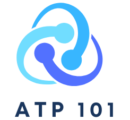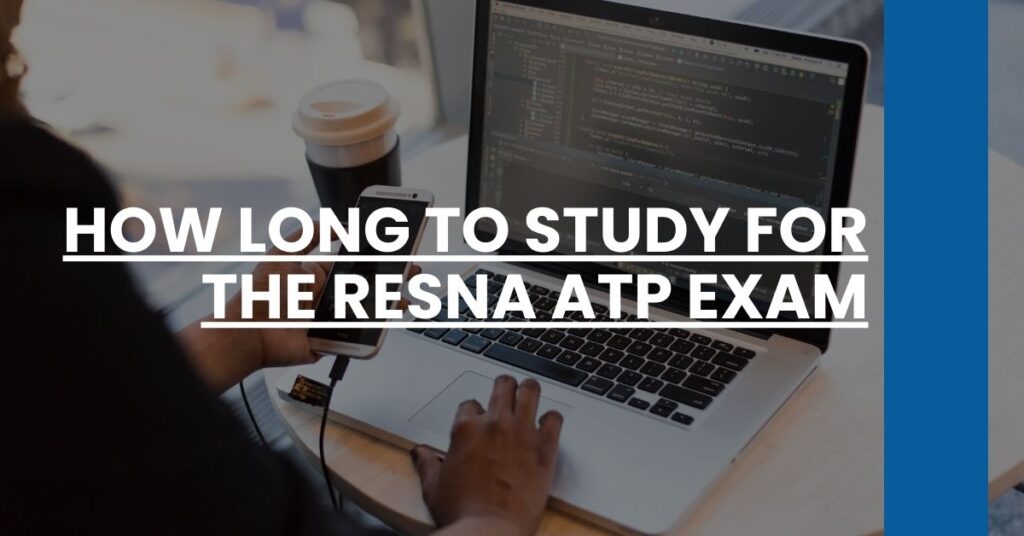How long to study for the RESNA ATP exam is essential knowledge for aspiring professionals.
- Custom Study Plan: Tailor your preparation time based on individual experience and knowledge in assistive technology.
- Dedicated Review: Schedule regular study sessions to cover the diverse topics of the ATP exam comprehensively.
- Practice Testing: Leverage practice exams to gauge your progress and adjust your study strategy accordingly.
Knowing how long to study for the RESNA ATP exam sets the stage for success.
- Understanding the RESNA ATP Exam
- Assessing Your Initial Knowledge Level
- Recommended Study Duration by Experts
- Customizing Your Study Plan
- Study Materials and Resources
- Effective Study Techniques
- Balancing Study with Work and Personal Life
- Monitoring Progress and Adapting Your Plan
- Final Preparation and Test-Taking Strategies
- Conclusion: Setting Yourself Up for Success on the RESNA ATP Exam
Understanding the RESNA ATP Exam
If you’re aspiring to become an Assistive Technology Professional (ATP), the RESNA ATP examination is your gateway to validating your expertise in the field. The ATP exam not only reflects your commitment to the profession but also ensures you have the necessary knowledge and skills to provide quality services.
Considering the exam’s extensive coverage of assistive technology, understanding its structure and content areas is the foundation of your study plan. Proper preparation is not just about reading; it’s about understanding the nuances of each topic and applying this knowledge effectively. When querying “How long to study for the RESNA ATP exam”, the answer lies in understanding its demanding nature.
Exam Format and Time Allocation
The RESNA ATP exam is a structured assessment. It requires not only a grasp of broad theoretical concepts but the ability to apply practical solutions to everyday challenges faced by people with disabilities. The exam is comprised of multiple-choice questions dispensed over 3 hours and 15 minutes—a time that necessitates strategic preparation and time management skills during your study and the actual test.
Key Content Areas
You’ll delve into a range of content areas, each significant in the overarching landscape of assistive technology:
- Assessment of Need: Understanding client requirements and contexts.
- Development of Intervention Strategies: Tailoring solutions to meet individual needs.
- Implementation of Intervention: Putting the plan into action in a real-world scenario.
- Evaluation of Intervention Effectiveness: Reflecting on outcomes and making necessary adjustments.
Given this breadth, how long you need to study hinges on developing a keen grasp of each, transforming theory into practice. Adopting a methodical approach to studying, considering the complexity and depth of the material, is essential for your success.
Assessing Your Initial Knowledge Level
Recognizing Strengths and Weaknesses
Begin with an honest self-evaluation of your current understanding of assistive technology to anchor your study timeline. Assess which content areas you’re already comfortable with and which require more of your focus. This self-awareness helps in allocating study time effectively.
Recommended Preparatory Steps
- Review the Exam Blueprint: Familiarize yourself with the test’s outline and the weightage of each section.
- Take a Practice Exam: Pinpoint knowledge gaps and build a baseline for your study plan.
With these insights in hand, you can formulate a study timeline that’s realistic and focused on fortifying weaker areas.
Recommended Study Duration by Experts
Industry experts and RESNA suggest a range of study durations, yet there is consensus that there’s no one-size-fits-all answer.
Typical Study Timelines
- For Novices: Those starting anew in assistive technology may consider upwards of six months of dedicated study.
- For Seasoned Professionals: If you have extensive experience, a shorter period, possibly 3-4 months, might suffice.
By evaluating where you fall on this spectrum, you fuse expert insight with personal need, laying out a pathway that is both advised and individualized.
Customizing Your Study Plan
Developing a personalized study schedule allows you to incorporate learning into your life without becoming overwhelmed. Consider the following when creating your plan:
- Identify ideal study times: Are you a morning person or do you thrive at night? Schedule study sessions when you’re most alert.
- Break down the content: Tackle complex topics in manageable fragments to prevent burnout.
- Set mini-goals: Achieve small, frequent victories to maintain motivation.
Building a Flexible Roadmap
A study plan should never be rigid. Life’s unpredictability necessitates a degree of flexibility. Nevertheless, remaining steadfast in your commitment to regular study sessions is pivotal. Ensure your plan is:
- Adjustable: Revise as needed based on progress.
- Balanced: Factor in work, personal life, and downtime.
Your study plan is a living document that guides you from initial preparation to entering the test center with confidence. By now, you should recognize that “How long to study for the RESNA ATP exam” is an inquiry with an answer unique to you, rooted in personalization and flexibility.
Study Materials and Resources
To confidently answer the question, “How long to study for the RESNA ATP exam?” you need to have the right study materials and resources at your disposal. Fortify your study plan with a variety of aids designed to cater to diverse learning styles and preferences.
Official ATP Exam Preparation: RESNA offers several preparation tools, including an online practice exam that will not only provide you with a realistic simulation of the testing environment but also give you an analytical report on your performance to identify areas to focus your studies.
RESNA Press Books: Build a strong foundation by sourcing reference books from RESNA Press that cover critical concepts and areas within assistive technology. These texts are authored by experts and can provide in-depth insight and examples.
Preparation Courses: Consider enrolling in review courses or webinars that RESNA and other reputable institutions offer. These often include live interactions with knowledgeable instructors who can clarify doubts and provide personalized feedback.
Additional Strategies to Enhance Learning
- Study Groups: Join study groups either locally or online. Discussions and shared insights can solidify your understanding of tricky content areas.
- Educational Videos and Webinars: Visual learners can benefit from instructional videos on platforms like YouTube, and webinars hosted by seasoned ATP professionals.
Utilizing Diverse Media: Don’t confine yourself to books and practice tests. Podcasts, educational blogs, and industry publications can also be highly informative and keep you engaged in your journey.
Endeavor to use these resources consistently throughout your preparation period. The RESNA ATP exam is comprehensive, and having a diverse toolkit at your disposal makes navigating this complex landscape far more manageable.
Effective Study Techniques
The techniques you employ to consume and retain information are just as important as the duration you spend studying. Effective strategies are key to mastering the content for the RESNA ATP exam.
Spaced Repetition and Active Recall
Both methodologies are supported by cognitive psychology research and have been proven to significantly enhance learning and retention:
- Spaced Repetition: This technique involves reviewing information at increasing intervals to enhance long-term memory.
- Active Recall: This requires you to test your knowledge regularly to reinforce learning without relying on the study materials.
Continuous Assessment
Regular self-testing using practice exams is not just about measuring your progress. It’s a powerful tool to familiarize yourself with the types of questions you might encounter and to hone your test-taking pace and strategy.
Practice Tests as Learning Tools: Remember that practice exams can be much more than a barometer for readiness. They can guide your ongoing study, highlighting strong areas and illuminating where you need additional focus.
Balancing Study with Work and Personal Life
As you consider how long to study for the RESNA ATP exam, you must also think about how studying will fit into your current lifestyle. Striking a balance is crucial to avoid burnout and maintain a healthy approach to your examination preparation.
- Efficient Time Management: Create a study schedule that carves out regular sessions for study without compromising critical aspects of your personal and professional life.
- Work-Life-Study Harmony: Learn to integrate study with your routine by identifying downtimes that can be used productively, such as commuting or during lunch breaks.
Ironically, as you enrich your understanding of assistive technologies, implementing ergonomic study practices can serve as a practical demonstration of professional principles—adopting tools and techniques that enhance learning efficiency, health, and well-being.
Monitoring Progress and Adapting Your Plan
The journey to the RESNA ATP exam is dynamic. As you advance, monitoring your progress not only keeps you on track but also signals when it might be time to adapt your study plan.
- Scheduled Reviews: Set intervals to review past material, ensuring it’s still fresh and well-understood before moving forward.
- Peer Feedback: Engage with colleagues or mentors to get an external perspective on areas needing improvement.
Regular check-ins on your progress will not only keep your studies relevant and focused but also assist in maintaining a positive and motivated mindset through the demands of exam preparation.
Final Preparation and Test-Taking Strategies
In the days leading up to the exam, refining your preparation and honing your test-taking strategies can make a substantial difference.
- Review Key Concepts: Revisit the central ideas and principles that are core to the ATP field without delving into new, complex material.
- Simulation: Run through full exam simulations under similar conditions to what you expect on test day to reduce anxiety and increase readiness.
It is essential, especially at this juncture, to maintain a healthy routine with adequate rest, nutrition, and exercise to ensure you’re at peak performance mentally and physically.
Conclusion: Setting Yourself Up for Success on the RESNA ATP Exam
Embarking on the RESNA ATP exam with a clear understanding of the necessary preparation length is crucial for success. Remember that “how long to study for the RESNA ATP exam” is closely tied to your ability to craft and adhere to a personalized study plan.
Combine sound strategies with suitable resources: A confluence of good materials and intelligent learning methods is the bedrock of effective preparation.
Be adaptive and self-aware: Tailor your approach as you evolve as a learner, and engage with the assistive technology community to enrich your understanding.
As you progress, trust in the process, knowing that each hour of study is a stepping stone towards fulfilling your professional aspirations in the assistive technology field. With persistence, dedication, and a thoughtful approach, you will cultivate the expertise necessary to excel in the RESNA ATP exam and, more importantly, to make a profound impact in the lives of those who use assistive technology.

